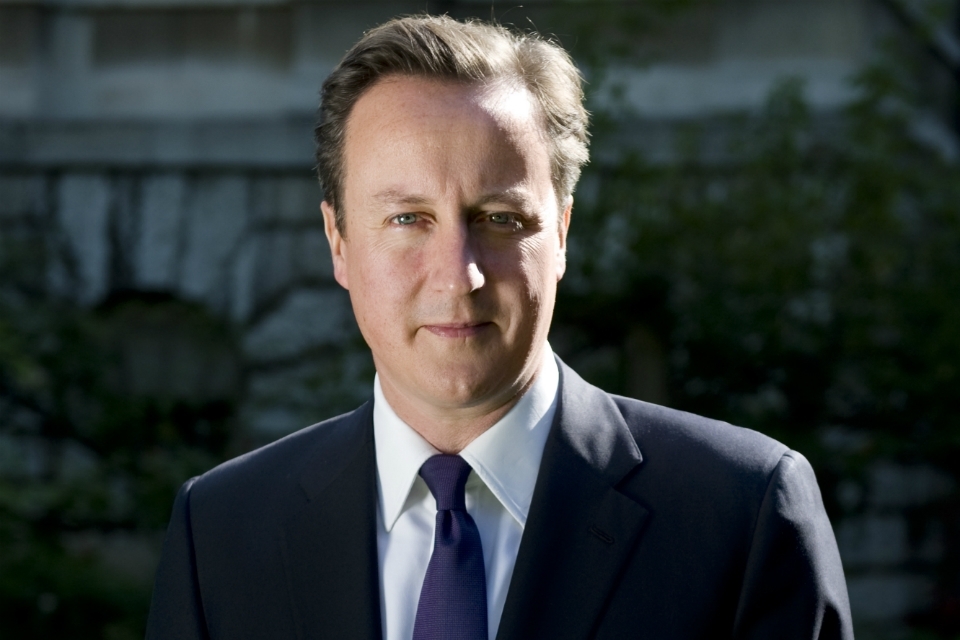Migration and EU reform: PM statement in Lisbon
David Cameron made a statement about migration and EU reform in Lisbon with the Portuguese Prime Minister Pedro Passos Coelho.

It is a pleasure to be here today in Portugal – Britain’s oldest ally. Of course, it is only a few weeks since I was here on holiday. But this is my first official visit to Lisbon since attending the NATO Summit in 2010.
Back then, both our economies were on the brink. The UK had suffered the deepest recession of all the major nations. And the Portuguese government’s borrowing costs were sky-rocketing.
And as leaders, both of us have had to take tough decisions to turn our economies around.
We have begun to see the results - in the UK, a jobs-led recovery has created more than a 1,000 jobs a day. And in Portugal unemployment has fallen to pre-crisis levels and the government is now able to raise finance. Prime Minister, that is an impressive record.
Both of us want to finish the job and to ensure that our countries continue to grow, bringing peace of mind for our hard-working people.
Today, we have discussed EU reform and the migration crisis.
EU reform
First on EU reform. We discussed my plan to address the concerns of the British people and to make the EU more competitive.
I set out the 4 areas we are seeking reform – on competitiveness, sovereignty, social security and economic governance.
There are many areas where the Prime Minister and I agree. For example, we both think that the EU can do much more to unleash the potential of the single market, whether in services, energy or the digital sector.
We both want to see less unnecessary regulation at the European level and we welcome the fact that the European Commission, under President Juncker, is producing fewer legislative proposals. We both believe in a stronger role for national Parliaments.
These are reforms that will benefit not just Britain, but Portugal and other EU countries too. Of course there is more work to be done to find the right solutions. But I believe this can be done.
At the heart of this negotiation is one simple question – is the EU flexible enough to respond to the different concerns of its 28 member states and to work together to make the EU more successful?
Migration
Turning to migration, this is clearly the biggest challenge facing countries across Europe today. In the first 6 months of this year, more than 220,000 people were detected crossing the Mediterranean to Europe.
And in July alone, over 100,000 people made this journey, 3 times higher than the number last year. These people come from different countries and different circumstances.
We know that many are Syrians fleeing the conflict that has raged across their country, that has killed over 220,000 and has forced more than 11 million people to flee their homes. They now face 2 enemies at home – Assad and ISIL.
Find out more about how the UK government is helping to address the Syrian refugee crisis.
Britain has a moral responsibility to help refugees as we have done throughout our history. We are already are providing sanctuary and we will continue to do so.
As the second largest bilateral donor to the crisis, we have provided over £900 million in aid to help those affected in Syria and the region – we have funded shelter, food, water and vital medical supplies for millions of desperate refugees fleeing the conflict and helping them to survive in the countries around Syria, like Jordan and Lebanon.
No European country has done more than Britain in this regard. Were it not for that massive aid, the numbers making the perilous journey to Europe today would be even higher.
Now we have already accepted around 5,000 Syrians and have introduced a specific resettlement scheme, alongside those we already have, to help those Syrian refugees particularly at risk.
View a fact sheet on the UK’s humanitarian aid response to the Syria crisis.
As I said earlier this week, we will accept thousands more under these existing schemes and we keep them under review.
And given the scale of the crisis and the suffering of the people, today I can announce that we will do more – providing resettlement for thousands more Syrian refugees.
We will continue with our approach of taking them from the refugee camps. This provides them with a more direct and safe route to the UK, rather than risking the hazardous journey which has tragically cost so many lives.
We will discuss how best to design these schemes and the numbers we will take with NGOs and our partners. We will set out more details next week.
Alongside this, Britain will continue to work with partners to tackle the conflict in Syria, to provide support to the region, to go after the smuggling gangs exploiting these people and to save lives at sea. HMS Enterprise remains in the Mediterranean alongside the Border Force cutters and together with HMS Bulwark, they have now rescued more than 6,700 people.
Britain will act with our head and our heart, providing refuge for those in need while working on long term solutions to this crisis. As I said earlier in the week, that means bringing to an end to the conflicts that are driving so many to flee, including the bloodbath that has engulfed Syria.